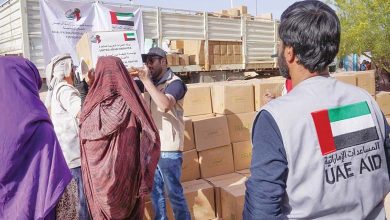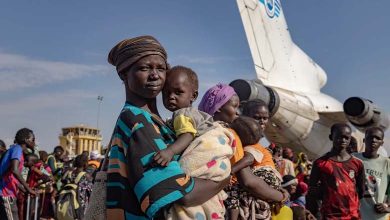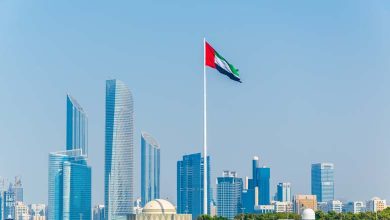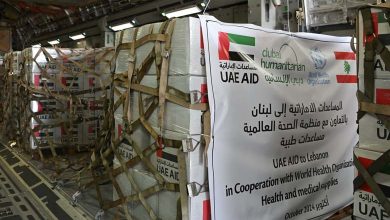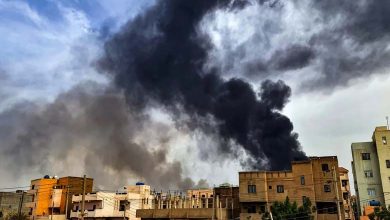Why do Palestinian experts exclude the implementation of the Sharm El Sheikh agreements?
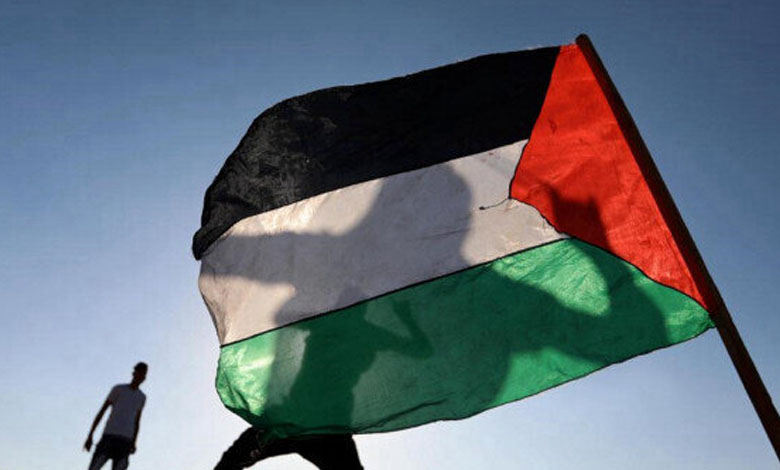
Despite the agreement of the five-party meeting in the Egyptian city of Sharm El Sheikh to maintain the truce in the Palestinian territories, it is unlikely to be effective on the ground.
“On Sunday, Sharm El Sheikh hosted a five-way security summit of senior political and security officials from Egypt, Palestine, Israel, Jordan, and the United States.”
Palestinian experts, in talks with Anadolu, ruled out the possibility of Israel implementing the commitments of the meeting, due to its lack of commitment to the previous understandings and its continuation of settlement building, incursions into cities and carrying out assassinations.
“The summit comes at a time of sharply heightened tension across the occupied West Bank in recent months, amid repeated Israeli military raids on Palestinian towns.”
** Security Summit
At the end of the meeting, the participants issued a statement which concluded that it is necessary to adhere to the implementation of the truce in the Palestinian territories, with an agreement to hold a new meeting in the same city next April.
The statement also said that the two sides agreed on 10 commitments to ease tensions and seek to revive the peace process frozen since 2014, including “strengthening security, stability and peace for Israelis and Palestinians alike.”
Participants agreed on the need to “seek to take measures to build trust, enhance mutual trust, open political horizons and deal with unresolved issues through direct dialog”, the statement said.
They also agreed to “establish a mechanism to reduce and respond to violence, statements and actions that could ignite the situation, improve the economic conditions of the Palestinian people and lift these two mechanisms to the next meeting.”
A day before the meeting, Palestinian factions, including Hamas, the Popular Front for the Liberation of Palestine (PFLP), Islamic Jihad, and the People’s Party, made separate statements asking the PNA not to participate.
The statements agreed to reject the participation of the Authority in the negotiations in the presence of a representative of Israel, which is targeting the resistance of the Palestinian people. Such meetings are also being used to launch further aggression against them.
“Since the beginning of 2023, some 90 Palestinians have been killed by Israeli forces, according to Palestinian data, while 14 Israelis have been killed in separate attacks over the same period.”
** Doesn’t end stress
Palestinian political expert Jihad Harb believes that “the security dimension may work to reduce tension, but it will not end it,” stressing that “there is no possibility of implementing understandings under a right-wing Israeli government,” referring to the government of Prime Minister Benjamin Netanyahu.
Harb told Anadolu that “the Israeli government immediately gave up these understandings through the statements of officials, most notably Netanyahu who confirmed that his government would continue to pursue any Palestinian who assaults the Israelis.”
On Sunday, Netanyahu vowed to pursue the Palestinians, accusing them of terrorism. “All those who try to harm the citizens of Israel will be reached. “We are getting to the terrorists and the engineers of terrorism everywhere.”
On the same day, Israeli Finance Minister and leader of the far-right “Religious Zionism” party Bezalel Smotrich said that “there is no such thing as a Palestinian people, but an invention no older than 100 years old,” as he put it.
“The issue is not Israel’s commitment or respect for signed agreements, and the past experience over the past years proves this,” Harb added.
“The Palestinian Authority is incapable of restricting the movement of Palestinians or canceling any operation (offensive) carried out by Palestinians, as it is carried out outside its security zone of control, in (Palestinian) areas (C), Jerusalem and (Palestinian) interior, which are controlled by Israel,” he said.
The 1995 Oslo II Accords designated the West Bank as three zones: A, under full Palestinian control; B, under Israeli security and Palestinian civilian control; and C, under full Israeli control, with the latter accounting for about 60 percent of the West Bank.
“Israel is continuing its policy of building settlements, incursions and assaults, as well as the settlers’ attacks on the Palestinians,” Harb said, stressing that “Israel is the cause of tensions, all these crimes are the result of the occupation.”
“The Palestinian people want to get rid of the Israeli occupation and they don’t want economic and security measures that would reduce tension and remove the main reason,” he said.
“The basis is the political horizon, unless there is an optimistic view among Palestinians of ending the occupation in the foreseeable future, the question of violence will remain alive and renewed,” he said.
** Israeli selection
Director of the Al-Quds Center for Studies at the Palestinian Al-Quds University, Ahmad Rafiq Awad, believes that “the possibility of implementing the understandings may be non-existent, due to the multiplicity of decision-makers in the Israeli government, which is made up of parties of the extreme right and the extreme right who control the various aspects of government.”
Awad said to Anadolu that “if the Sharm El Sheikh understandings and the Aqaba precedent were left to Israel, they would interpret and apply them from their perspective, applying what they want and selecting from them what is in line with their policy.”
On February 26th, the same parties held a meeting in Aqaba, southern Jordan, during which it was decided to hold the Sharm El Sheikh meeting, amidst continued Israeli confrontations, incursions, and Arab condemnations.
Awad added that “the final statement (issued in Sharm El Sheikh) did not address Palestinian concerns or respond to important questions, namely, will the Israeli occupation stop killing Palestinians and confiscating (homes) and denying the settlement?””.
“Maintaining the security order does not lead to results,” he said. “It should be a political horizon leading to the end of the occupation.”
“Washington supports and legitimizes the occupation and wrongly balances Palestinian actions against settler violence, so there is no real role for the participants in the summit, which should be monitoring the situation in Palestine,” he said.
“Washington supports and legitimizes the occupation and wrongly balances Palestinian actions against settler violence, so there is no real role for the participants in the summit, which should be monitoring the situation in Palestine,” he said.
“Israel claims that the month of Ramadan is a bloody month, in order to commit crimes against the Palestinian people under the pretext of fighting terrorism,” he concluded.
“On March 6, Israeli National Security Minister Itamar Ben Gufir instructed that the demolition of Palestinian homes in Jerusalem continue during Ramadan, which begins on Thursday 23 March.”
On the same day, the Israel Broadcasting Corporation reported that a battalion in the central city of Lod would be trained as a “special protection squad, as part of the police’s preparation for possible disturbances during the upcoming month of Ramadan.”
** Narrow Opportunities
Director of the Yabous Center for Studies (Palestinian private) Suleiman Bisharat said that “the window of opportunity for implementing the outputs of the Sharm El Sheikh summit is very narrow, and this is the result of a combination of factors.”
Bisharat explained to Anadolu that “the first factor is the continuation of the Israeli field threat almost daily through demonstrations and assassinations directly by its special forces in Palestinian cities, which provoke the street and create a challenge and reaction.”
He added that the Israeli threat is causing “the inability to control the daily behavior of the settlers in the streets of the West Bank, which means the threat of Palestinian citizens crossing from main streets between the governorates.”
The second factor, “is linked to the gap between the Palestinian street and the movement of the political leadership, and there is no harmony between them, because there is no conviction that the occupation will give something to the Palestinians free of charge at the expense of the national dimension and rights,” Bisharat said.
The third factor is that “the vision that underpins the outcomes of the meetings [in Sharm el Sheikh] is within the security framework only and not the political one, and this raises fears of the possibility of an internal Palestinian clash as a result of Israeli pressure on the Palestinians.”
Bisharat said that fears of internal Palestinian clash due to Israeli pressure would be “a bigger incentive for confrontation with the occupation, to escape from internal clash.”
The fourth factor is related to the field, he said, noting that “the daily developments on the ground have more control over any situations, and this is subject to circumstances outside the framework of political and security arrangements.”
In the field, “any event can quickly reshuffle the cards, and the situation evolves into confrontation instead of stability,” he said.


